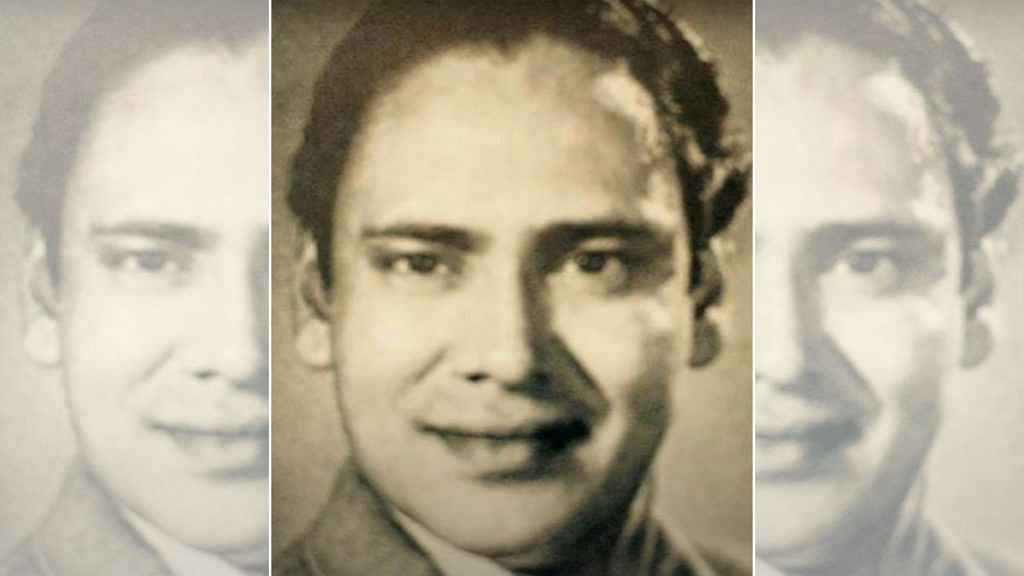Think of some of the most poetic songs of Hindi cinema, from Zindagi Ek Safar Hai Suhana to Ehsaan Tera Hoga Mujh Par, and you have one person to thank — lyricist Hasrat Jaipuri.
One half of the duo that wrote the lyrics for some of Hindi cinema’s most enduring classics, including every Raj Kapoor song from 1949’s Barsaat to 1971 ‘s Kal Aaj Aur Kal and a few beyond that, Jaipuri is the classic example of how to make it in the film industry on nothing but talent.
Born Iqbal Hussain on 15 April 1922, and brought up in Jaipur, he grew up learning Urdu and Hindi. But it was his love for a girl named Radha that actually drove him to poetry. The love story didn’t work out, but decades later, a letter he wrote for her became a song in Raj Kapoor’s Sangam (1964) — Yeh Mera Prem Patra.
Barely 20 years old, Jaipuri made his way to Mumbai in 1940, much like many other young men, to make a name for himself. He worked as a bus conductor for next eight years, and would regularly take part in mushairas to keep his love for poetry alive. It was at one such mushaira that he was spotted by none other than Prithviraj Kapoor, a titan of Indian theatre and cinema.
Kapoor instantly took a liking to Jaipuri’s raw, natural talent and told his son, actor and filmmaker Raj Kapoor, to consider hiring him. One thing led to another, and Jaipuri found himself composing his first song, Jiya Beqaraar Hai, for the 1949 film, Barsaat, starring Raj Kapoor, Nargis, Prem Nath and Nimmi.
The film’s music was composed by Raj Kapoor’s staple musicians Shankar and Jaikishan, and had many lyricists on board, one of whom was Shailendra. It was during the making of this movie that Jaipuri met Shailendra, who went on to become his partner in poetry for most of their careers. The two became the Shankar-Jaikishan of the world of lyrics, and the four of them made up Kapoor’s dream team through the 1950s and ’60s.
Jaipuri delivered some of Bollywood’s best known songs for films like Ram Teri Ganga Maili, Shree 420, Andaz, Junglee, Love in Tokyo and more.
On his 21st death anniversary, a celebration of Hasrat Jaipuri through some of his best work:
Zindagi Ek Safar Hai Suhana (Andaz, 1971)
Featuring Rajesh Khanna, Hema Malini and Kishore Kumar’s famous yodel, this song was a major hit and won Jaipuri a Filmfare Award for Best Lyrics.
Badan Pe Sitare Lapete Hue (Prince, 1969)
Perhaps one of the most popular romantic and flirty songs to have ever come out of Bollywood, this Shammi Kapoor and Vyjayanthimala number owes its success equally to Mohd Rafi’s timbre and Jaipuri’s words. The story goes that Jaipuri was inspired to write this song when he saw a woman wearing a fully sequinned sari in Paris.
Sayonara Sayonara (Love in Tokyo, 1966)
Who can forget the beautiful Asha Parekh dancing and singing in scenic Tokyo, in a kimono, wooing a handsome Joy Mukherjee?
Ichak Dana Bichak Dana, (Shree 420, 1955)
This blockbuster hit film, which also happened to be the highest-grossing film of 1955, had a soundtrack that filmmakers would kill for. Jaipuri’s fun, slightly nonsensical, Ichak Dana has caught the imagination of people across generations, and it’s still an Antakshari favourite.
Sun Sahiba Sun (Ram Teri Ganga Maili, 1985)
One of his later works, after Shailendra’s death, this song remains fresh in most millennials’ minds as well, as a proclamation of love.
Also read: Shailendra — the Leftist poet and Dalit genius whose lyrics define beauty of simplicity
